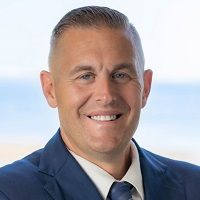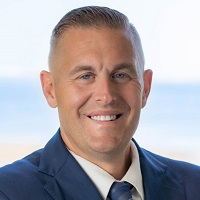Why It's Important to Know Whether Your Adviser Is a Fiduciary
You need to know that the person you trust with your finances is required to act in your best interest.

Profit and prosper with the best of Kiplinger's advice on investing, taxes, retirement, personal finance and much more. Delivered daily. Enter your email in the box and click Sign Me Up.
You are now subscribed
Your newsletter sign-up was successful
Want to add more newsletters?
It's a word that's been in the news a lot lately, leaving many people wondering, "What's a fiduciary?"
And it's something worth wondering about because it involves an important distinction that could affect your bottom line.
First, it's important to know that there are two standards when it comes to providing financial advice: a fiduciary standard and a suitability standard.
From just $107.88 $24.99 for Kiplinger Personal Finance
Become a smarter, better informed investor. Subscribe from just $107.88 $24.99, plus get up to 4 Special Issues

Sign up for Kiplinger’s Free Newsletters
Profit and prosper with the best of expert advice on investing, taxes, retirement, personal finance and more - straight to your e-mail.
Profit and prosper with the best of expert advice - straight to your e-mail.
Fiduciaries are governed by federal regulations and must place a client's needs first, ahead of their own.
The suitability standard is different. It only requires that a financial professional make investment recommendations that are "suitable" for the client's needs. So, let's say two investment options would achieve what the client wants, but one pays a higher fee to the financial professional. He or she could recommend that investment, even though it would be more costly for the client.
Many people probably don't know whether the person giving them advice is a fiduciary or not. The reason the word has been in the news so much is that the Department of Labor has set down new rules, which will take full effect beginning January 2018, that require all advisers to adhere to the fiduciary standard for advice on retirement accounts or qualified assets.
These new rules are meant to protect investors from unnecessary fees and to address conflicts of interest in retirement advice. According to the government, investors have been wasting an average of $17 billion a year in exorbitant fees. This new fiduciary rule is designed to help save middle-class families what is estimated from those costs.
Some financial advisers don't currently subscribe to this higher fiduciary standard. There are three types of advisers:
Insurance Agents and Producers: Insurance agents or producers are not the same as a financial adviser. Some insurance agents will tell you that they can advise you on your retirement and finances, when in fact, if they are licensed only as an insurance agent, they are limited to selling you only those insurance products they represent. They cannot give market-based advice. They are held to the suitability standard, not the fiduciary standard.
Broker-Dealer: A broker-dealer is someone who facilitates investment transactions. Typically they work for a large financial firm and are compensated through commissions and fees. Someone who is licensed only as a broker-dealer is not required to meet fiduciary standards. Therefore, they can recommend an investment that will make them a higher commission as long as it's "suitable" even if it could cost you, the investor, more than another product or investment that would be better for your situation.
Investment Adviser Representatives and Registered Investment Advisers: Registered Investment Adviser firms are registered either with the SEC or with applicable state agencies. Independent Registered Investment Advisers have the ability to offer investment products, and some may also be licensed to solicit insurance sales, but the products must be in the clients' best interest. All Registered Investment Advisers and their representatives are required by law to act in a fiduciary capacity. Their charges for securities transactions are often based on a percentage of investment assets under their management, rather than on commissions, and they are required by law to uphold a fiduciary standard, meaning the recommendations they make are required to be in your best interest.
Until the DOL's new fiduciary rule becomes effective, it's important for all investors and retirees to ask their current adviser, broker or insurance agent whether they are a fiduciary. This is one of the most important questions you can ask your adviser. Take caution when asking this question—some advisers may tell you that even though they are not fiduciaries, they still "act like fiduciaries."
It's not the same. To be sure no one is pushing you toward products or investments that are not in your best interest, it's important to have an adviser who is legally bound to put you first.
Keith Ellis, co-founder of SHP Financial in Plymouth, Massachusetts, is insurance licensed and has passed his Series 65 securities exam, which qualifies him to provide financial and investment advice, as well as personally manage investment portfolios as a fiduciary adviser.
Rozel Swain contributed to this article.
Investment Advisory Services are offered through SHP Wealth Management LLC, an SEC registered investment adviser. Insurance sales are offered through SHP Financial, LLC. These are separate entities, Matthew Chapman Peck, CFP®, CIMA®, Derek Louis Gregoire, and Keith Winslow Ellis Jr. are independent licensed insurance agents, and Owners/Partners of an insurance agency, SHP Financial, LLC. In addition, other supervised persons of SHP Wealth Management, LLC are independent licensed insurance agents of SHP Financial, LLC. No statements made shall constitute tax, legal or accounting advice. You should consult your own legal or tax professional before investing. Both SHP Wealth Management, LLC and SHP Financial, LLC will offer clients advice and/or products from each entity. No client is under any obligation to purchase any insurance product. SHP Financial utilizes third-party marketing and public relation firms to assist in securing media appearances, for securing interviews, to provide suggested content for radio, for article placements, and other supporting services.
Profit and prosper with the best of Kiplinger's advice on investing, taxes, retirement, personal finance and much more. Delivered daily. Enter your email in the box and click Sign Me Up.

Keith Ellis is a founding member of SHP Financial and an integral part of the growth of the company since 2003. For over two decades, he has been dedicated to helping his clients protect not only their current investments but also plan for and protect their retirement. This passion and the motivation behind it are solely attributed to his upbringing. Hard work and the value behind not only the financial investment but also the time investment were instilled in him from an early age. He proudly comes from a lineage of entrepreneurs, cranberry farmers and teachers. His learning came from a hands-on approach whether it was bagging cranberries, working at his father’s side or starting his own lawn care business at 9 years old.
-
 Timeless Trips for Solo Travelers
Timeless Trips for Solo TravelersHow to find a getaway that suits your style.
-
 A Top Vanguard ETF Pick Outperforms on International Strength
A Top Vanguard ETF Pick Outperforms on International StrengthA weakening dollar and lower interest rates lifted international stocks, which was good news for one of our favorite exchange-traded funds.
-
 Is There Such a Thing As a Safe Stock? 17 Safe-Enough Ideas
Is There Such a Thing As a Safe Stock? 17 Safe-Enough IdeasNo stock is completely safe, but we can make educated guesses about which ones are likely to provide smooth sailing.
-
 Missed Your RMD? 4 Ways to Avoid Doing That Again (and Skip the IRS Penalties), From a Financial Planner
Missed Your RMD? 4 Ways to Avoid Doing That Again (and Skip the IRS Penalties), From a Financial PlannerIf you miss your RMDs, you could face a hefty fine. Here are four ways to stay on top of your payments — and on the right side of the IRS.
-
 What Really Happens in the First 30 Days After Someone Dies (and Where Families Get Stuck)
What Really Happens in the First 30 Days After Someone Dies (and Where Families Get Stuck)The administrative requirements following a death move quickly. This is how to ensure your loved ones won't be plunged into chaos during a time of distress.
-
 AI-Powered Investing in 2026: How Algorithms Will Shape Your Portfolio
AI-Powered Investing in 2026: How Algorithms Will Shape Your PortfolioAI is becoming a standard investing tool, as it helps cut through the noise, personalize portfolios and manage risk. That said, human oversight remains essential. Here's how it all works.
-
 A Newly Retired Couple With a Portfolio Full of Winners Faced a $50,000 Tax Bill: This Is the Strategy That Helped Save Them
A Newly Retired Couple With a Portfolio Full of Winners Faced a $50,000 Tax Bill: This Is the Strategy That Helped Save ThemLarge unrealized capital gains can create a serious tax headache for retirees with a successful portfolio. A tax-aware long-short strategy can help.
-
 5 Retirement Myths to Leave Behind (and How to Start Planning for the Reality)
5 Retirement Myths to Leave Behind (and How to Start Planning for the Reality)Separating facts from fiction is an important first step toward building a retirement plan that's grounded in reality and not based on incorrect assumptions.
-
 I'm a Financial Adviser: Silence Is Golden, But It Hurts Your Heirs More Than You Think
I'm a Financial Adviser: Silence Is Golden, But It Hurts Your Heirs More Than You ThinkTalking to heirs about transferring wealth can be overwhelming, but avoiding it now can lead to conflict later. Here's how to start sharing your plans.
-
 Will Your Children's Inheritance Set Them Free or Tie Them Up?
Will Your Children's Inheritance Set Them Free or Tie Them Up?An inheritance can mean extraordinary freedom for your loved ones, but could also cause more harm than good. How can you ensure your family gets it right?
-
 I'm a Financial Adviser: This Is the Real Key to Enjoying Retirement With Confidence
I'm a Financial Adviser: This Is the Real Key to Enjoying Retirement With ConfidenceA resilient retirement plan is a flexible framework that addresses income, health care, taxes and investments. And that means you should review it regularly.